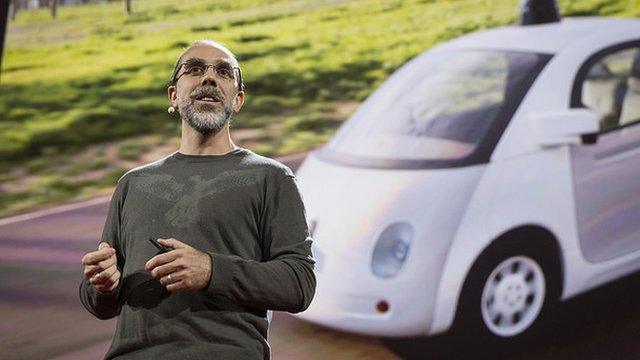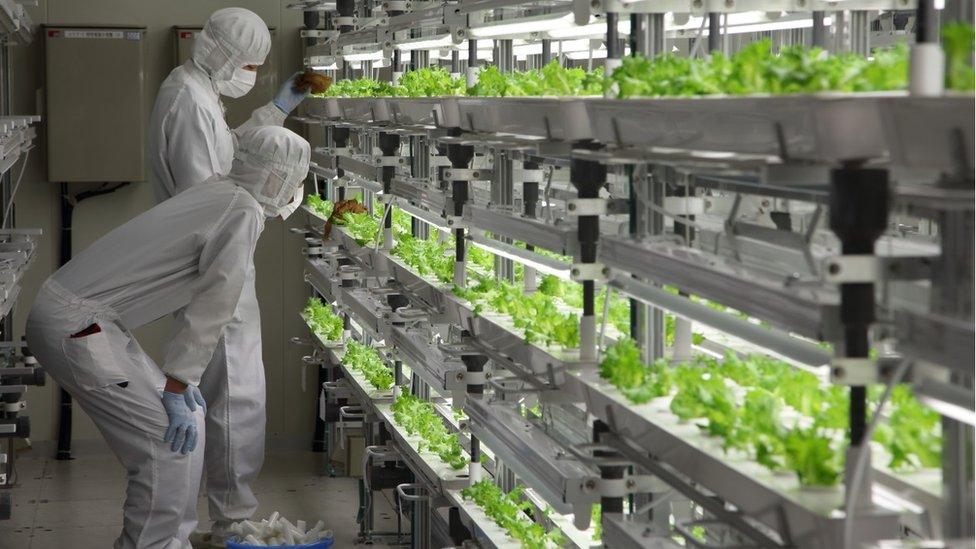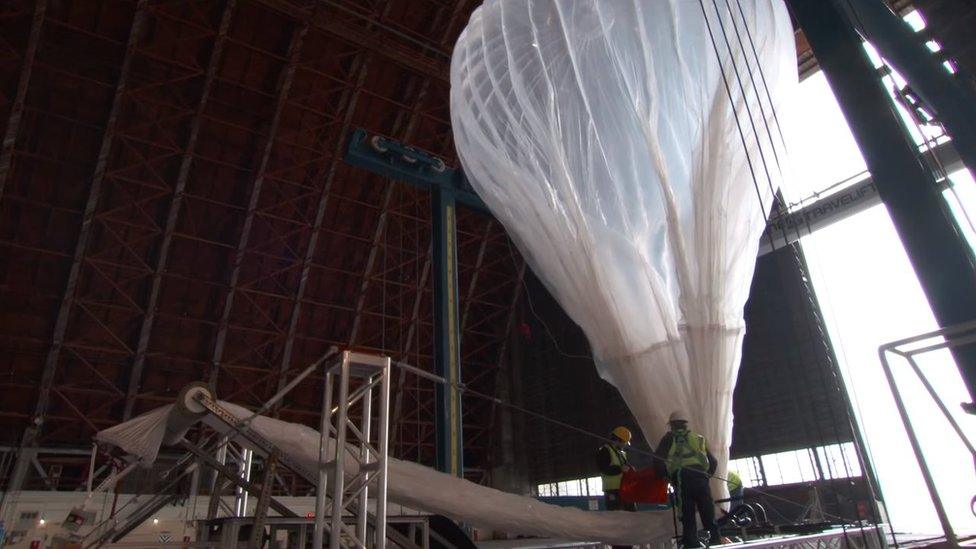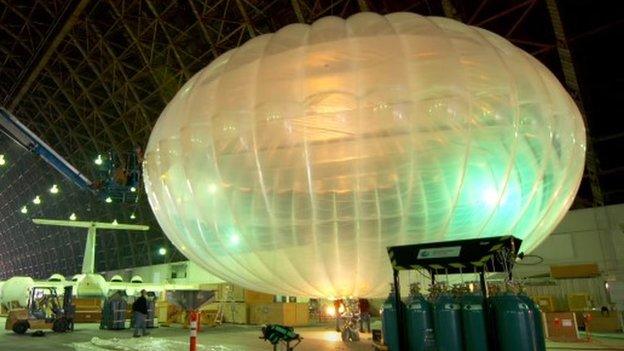TED 2016: Google boss on why it is OK to fail
- Published

Some of X's projects, like the driverless car, have been successful
The head of Google's research and development lab X has been speaking about projects that failed, at the TED (Technology, Entertainment and Design) conference in Vancouver.
Astro Teller revealed the tech giant considered building air cargo ships and vast vertical farms but later rejected them.
The theme of this year's TED is Dream.
Mr Teller revealed that at X, dreams were big but failure was a key part of any project.
X, described as Google's "moon shot" factory, has many projects that have gone on to become reality, including Google's driverless car program and Project Loon, an attempt to use balloons to deliver internet to places that have been traditionally cut off from access.
Mr Teller revealed that the formula for deciding which projects to pursue was a simple one.
"We find a huge problem that affects millions of people, propose a radical solution and look for a breakthrough technology that can solve it," he said.
"We spend most of our time breaking things and trying to prove we are wrong."
Vertical farms
Projects which were left on the cutting room floor included plans to build vertical farms.
Hydroponic farming, in which crops are grown indoors in boxes stacked on top of each other with no need for soil, is seen as a solution for an increasingly urban world population living in crowded cities with little space for land.

Japanese firm Fujitsu is applying a cloud-based approach to food production
"One in nine people suffers from undernourishment and vertical farming uses 10 times less water, 100 times less land," said Mr Teller.
But the company rejected the idea of large-scale versions of such farms when it realised that staple crops such as rice and grain could not be grown in that way.
Others are ploughing ahead with vertical farming. Chicago-based FarmedHere plans to open a $23m (£16m) vertical farm in West Louisville while Japanese firm Fujitsu sells the produce it makes to hospitals, supermarkets and hotels.
Cargo airships
The second project that Mr Teller revealed had been later ditched was a plan to build lighter-than-air cargo ships. That was dropped when the team working on it decided that it would cost too much to build a prototype.
"You can't spend $200 million on the first data point of a project," he said.

Google's Project Loon superpressure balloons have already flown millions of kilometres around the world
Failure is hugely important at X, Mr Teller told the TED audience.
"The only way to get people to work on big, risky things - audacious ideas - is to make it safe to fail," he said.
"The Silicon Valley hype machine has created this myth that visionaries are effortlessly creating the future. Don't believe the hype," he said.
Project Loon for instance, perhaps one of X's most outlandish ideas, has been a steep learning curve, Mr Teller said.
"We made round, silvery balloons, we made pillow balloons. We basically burst a lot of balloons," he said.
But, he added Project Loon now appears as a viable solution to the digital divide. He predicted that balloon-based net services along with other technologies would connect the rest of the world in the "next five to ten years".
"That will change the world in ways that we can't imagine," he said.
- Published28 October 2015

- Published22 December 2015
